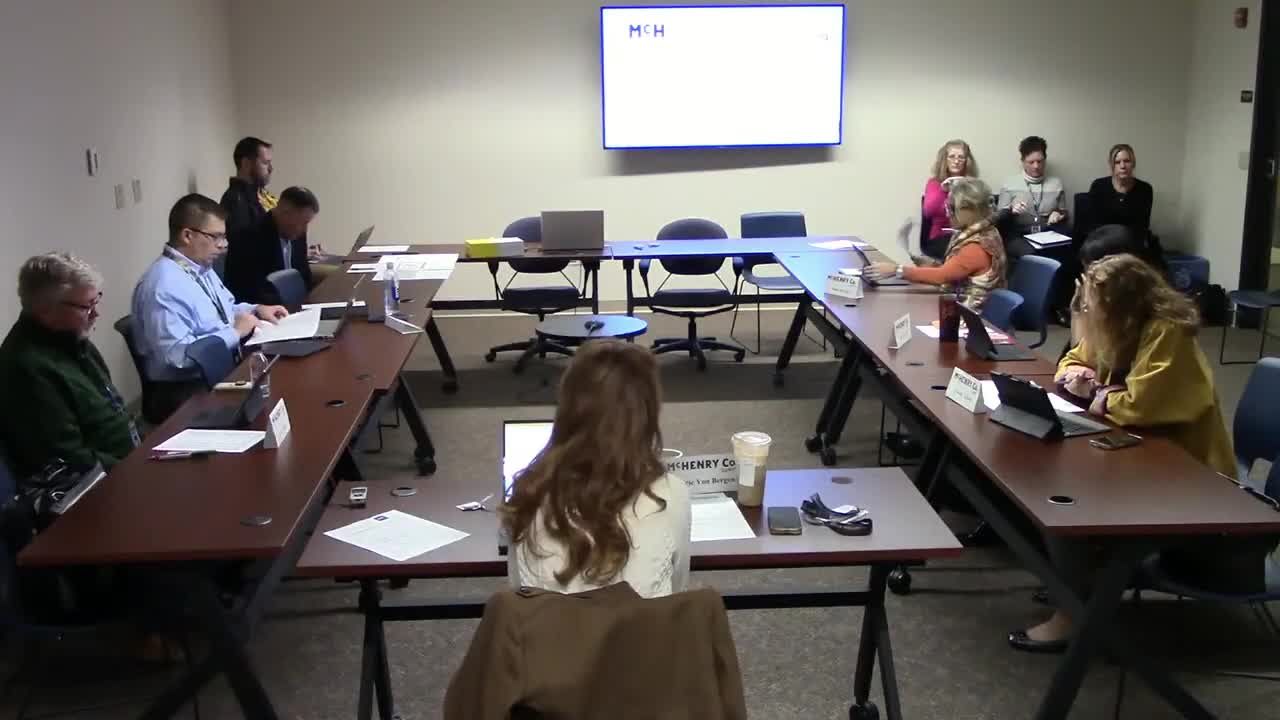McHenry County mental health board outlines FY26 awards, oversight and reserves
Get AI-powered insights, summaries, and transcripts
Subscribe
Summary
The McHenry County Mental Health Board presented its FY26 awards and oversight process during the Public Health & Community Services Committee meeting on Oct. 30, saying it reviewed roughly 85 applications and awarded approximately $10 million across annual and opioid-related funds.
The McHenry County Mental Health Board presented its FY26 awards and oversight process during the County Public Health & Community Services Committee meeting on Oct. 30. Bridget Keenan and other board staff described the allocation spreadsheet, application counts and monitoring controls.
The board told the committee it reviewed roughly 85 applications across annual and opioid funding pools and awarded “$10,000,002.96” (as stated during the presentation) across annual and opioid monies. A board member corrected an earlier phrasing, saying, “We had over 14,000,000 in request. We do not have 14,000,000,” to distinguish requested dollars from awarded funds.
Board staff described how they verify use of awarded funds: monthly requests for payment accompanied by affidavits and supporting documentation, midyear and year-end reconciliation, annual agency audits and occasional recoupments. “Every month they submit an affidavit along with backup support showing the positions filled, the work performed… and all that is vetted monthly,” a staff member said.
The board also outlined a midyear allocation process that can reassign unspent funds and said it had left a pool of roughly $300,000 unallocated in the initial funding cycle to address emergent needs. The board reported that agencies funded with opioid-settlement dollars were operating at full capacity in the quarter-3 outcomes: “the agencies that are funded through the opioid settlement funds, they are at a 100% capacity,” a presenter said.
Committee members asked about service coverage for intellectual and developmental disabilities; board staff said the percentage allocated reflects provider applications and recommended strategies to attract providers, such as adding capacity onto existing homes rather than constructing new facilities.
Board leaders said their grant-writer and new investment strategy have produced tangible returns: they reported establishing an investment account and transferring an initial $6 million for investment and cited examples of grant awards obtained with the board-funded grant writer.
The presentation did not propose county action; it was an informational briefing and elicited follow-up questions about provider recruitment, reserve levels and long-term planning for one-time opioid funds.
Ending note: Board staff said they will continue midyear monitoring and use the board—s midyear allocation process to respond to emergent needs and to preserve sustainability when one-time opioid dollars fluctuate.
